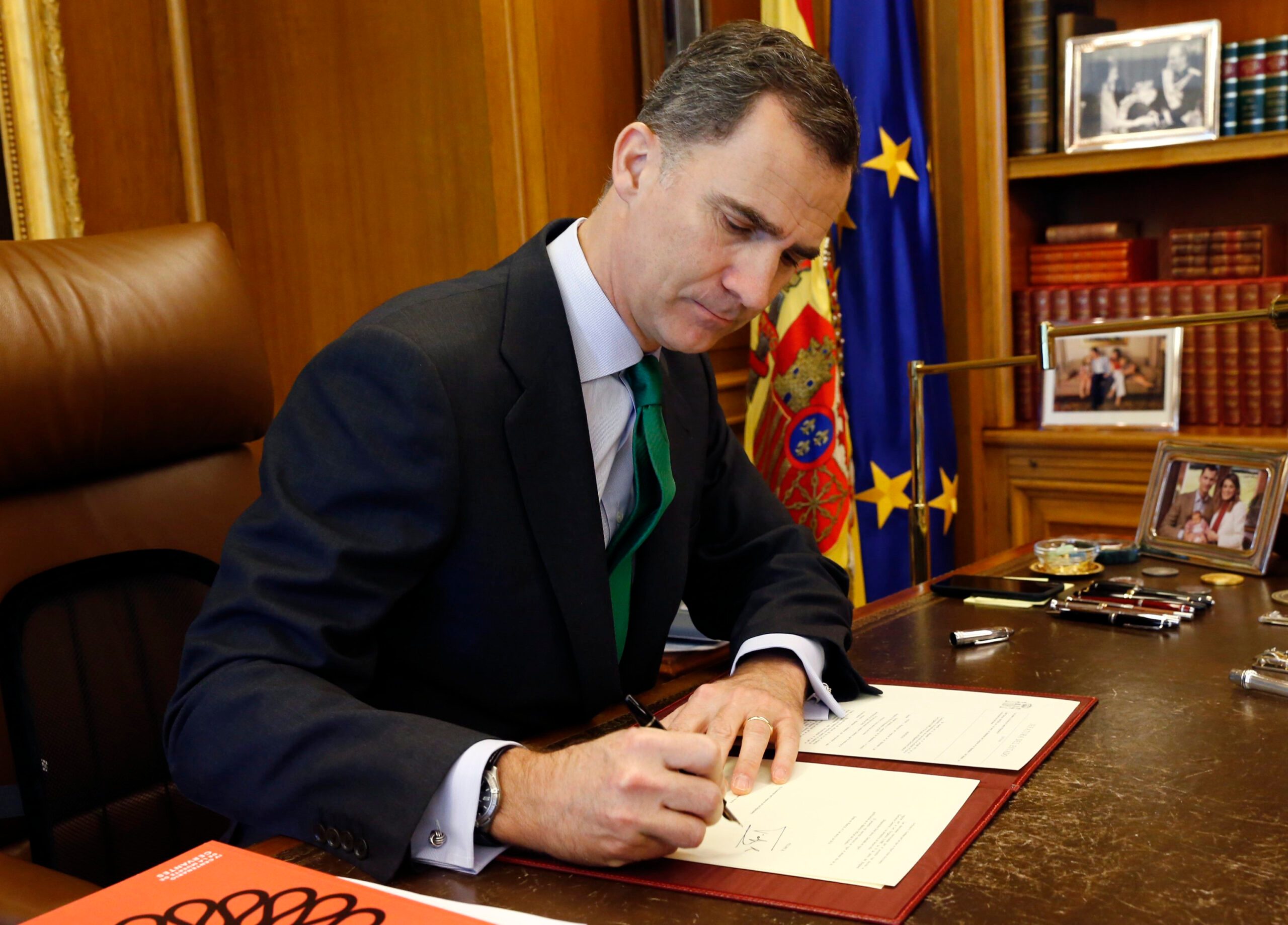SUMMARY
This is AI generated summarization, which may have errors. For context, always refer to the full article.

MADRID, Spain (UPDATED) – Weary Spaniards will head to the polls for the 2nd time in 6 months after King Felipe VI on Tuesday, May 3, called fresh elections for June 26, which surveys suggest may result in yet another hung parliament.
The king signed a decree dissolving parliament in the eurozone’s 4th largest economy after political parties failed to agree on a coalition to install a new government following inconclusive December 20 elections.
Spain has never had to repeat elections since the country returned to democracy following the death of longtime dictator General Francisco Franco in 1975.
“It is the first time that this has happened in the democratic era because we were unable to fulfill the mandate citizens gave us,” parliament speaker Patxi Lopez told reporters after the king signed the decree.
“Let’s hope we’ve all learned our lesson and that the next parliament reaches an agreement as soon as possible,” he added.
Spain will be left with a caretaker government for several more months as it battles an unemployment rate of 21%, the highest rate in the European Union after Greece’s.
December’s vote put an end to Spain’s traditional two-party system as voters fed up with austerity and corruption scandals flocked to new groups, resulting in a hung parliament.
Spain has never had a coalition government and parties tried in vain since the polls to cobble together a governing alliance.
Much of the negotiations had centered around left-wing parties after Prime Minister Mariano Rajoy – whose conservative Popular Party (PP) won the December election but lost its majority – gave up trying to form a government for lack of support.
The Socialists (PSOE) – who came 2nd in the polls with just 90 parliamentary seats out of 350 – were tasked by the king to try and bring other parties together in a coalition, but ultimately failed.
Socialist leader Pedro Sanchez managed to strike a deal on a government with centrist upstart Ciudadanos – which came 4th in the election – but the two parties had too few seats in parliament to win a vote of confidence.
He then tried to enlist the support of new far-left party Podemos, whose 65 parliamentary seats would have got it through, but failed.
‘Avoided the worst’
Polls suggest that fresh elections will do little to change the December outcome, which saw 4 parties win much of the parliamentary seats – but not enough each to gain power.
Rajoy’s conservatives could gain ground, while new far-left party Podemos may lose as some of the 5 million people who voted for the party and its allies believe it should have worked with the Socialists.
He credits his reforms for returning Spain to growth after a sharp economic downturn sparked by the collapse of a property bubble in 2008.
The Spanish economy expanded by 3.2% last year, one of the fastest rates in Europe, and his acting government predicts it will grow by an average annual rate of 2.5% over the next 4 years.
The European Commission believes the forecast is too optimistic and has urged Madrid to do more to rein in its public deficit which came in at 5% of output last year.
“We have avoided the worst,” Rajoy said in an interview published Sunday in daily newspaper La Razon in a reference to a failed bid by Podemos, a close ally of Greece’s ruling Syriza, to form part of a governing coalition.
Over three-fifths of Spaniards, 62%, feel the political situation in Spain is “bad” or “very bad,” according to poll published Tuesday by the state-run Sociological Research Center (CIS).
Analysts say parties will likely be more willing to compromise after fresh polls as voters will be impatient for a government to be formed.
A possible game changer in fresh elections would be an alliance of Podemos with the smaller Izquierda Unida, a communist-green party that got 800,000 votes in December.
The two parties are discussing the possibility, which could help Podemos surpass the Socialists in new elections. – Daniel Silva, AFP / Rappler.com
Add a comment
How does this make you feel?
There are no comments yet. Add your comment to start the conversation.